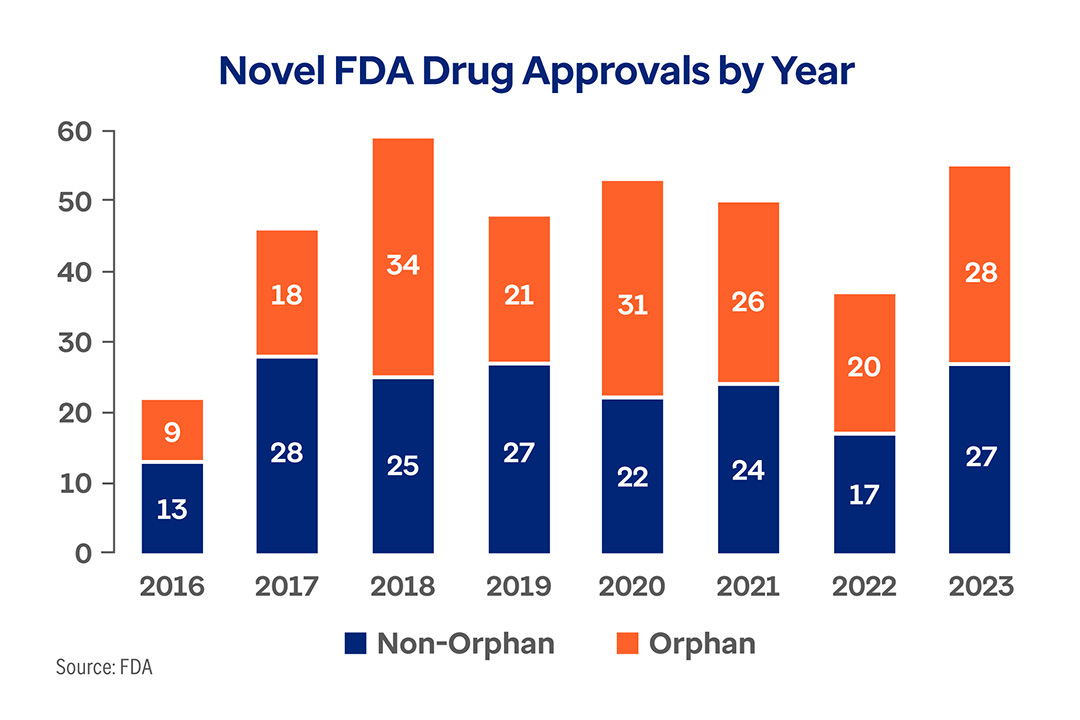Accelerate the use of biosimilars
Much as generics have long exerted downward pricing pressure on small molecule drugs with expired patent protection, biosimilars are now making inroads as a cost-saving alternative to biologic drugs. Once a brand-name biologic drug faces biosimilar competition prices can drop up to 60%.
Such relief is overdue in the anti-inflammatory category, where expensive biologic medicines have become standard of care in many places. Nothing symbolizes the need for competition quite like Humira® (adalimumab). Indicated for treatment of rheumatoid arthritis, Crohn’s disease, and psoriasis, Humira was approved the Food and Drug Administration (FDA) in 2002 and enjoyed market exclusivity for over two decades due to its patent protections and protracted litigation with biosimilar makers. As a result, branded Humira is the top-selling drug in history, tallying over $200 billion in sales since it was approved.
The once dominant market position of Humira started to change as multiple adalimumab biosimilars entered the market. In February 2023, Optum Rx became the first pharmacy benefit manager to announce it would add an adalimumab biosimilar to formulary at parity to Humira. The impact of this competition on the anti-inflammatory class in particular and prescription drug spending in general was swift and considerable. Analysis indicates that largely due to the introduction of Humira biosimilars net prices in the rheumatoid arthritis category in the U.S. fell by 30% during 2023.
Immunosuppressive drugs such as Humira are not the only biologics facing new competitors. In May the U.S. Food and Drug Administration approved two interchangeable biosimilars options to Eylea®, a drug used to treat macular degeneration and other eye conditions. Looking further ahead, Trulicity, a GLP-1 drug approved in 2014 and indicated for Type 2 diabetes, is expected to lose key patent protections in 2027. Two popular immunotherapy used to treat a variety of cancers, Keytruda and Opdivo, are each expected to lose patent protection in 2028.


![First Oral GLP-1 Drug for Weight Loss [Report]](/content/dam/optum-dam/images/business/pharmacy/pharmacist-with-pills-1080x720.jpg)

